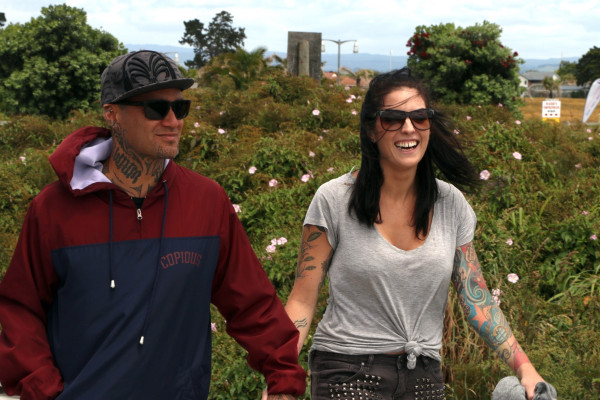Rachel's story was initially shared on an earlier version of this site - DrugHelp.
My name's Rachel. I'm 26 and originally from Christchurch.
The age of about 14 I started using PCP. It was really easily accessible for me because I had a family member who stocked it that got me into meeting people in the Ritalin and methamphetamine scene. It was exciting, I guess. And that's what made me use.
I lived in a storage shed with my boyfriend, and we fixed people's cars. Got involved with gangs, which led on to things like stealing and kidnappings, home invasions, raids by the police. I lost my friends. I lost my family. They didn't want anything to do with me because they were watching me die. One boyfriend I was with, he owed a lot of money to a lot of different gangs. We ended up being kidnapped. He got taken for a day and a half. I got taken to a pad and held. And then my boyfriend turned up the next day beaten to shreds. I've never seen anyone like that before. I was raped in front of him, as well.
And sadly that wasn't the point where it was enough. It took me a good two years of it being really, really bad to decide that yeah, this is it. I want some help. I'd shot up before I'd gone to this gig with my mom. And the only reason why I shot up was because I'd been awake for about seven days. And I promised-- it was my mom's birthday and I promised my mom that I'd go with her to this concert.
And I think it was, I think it was really hard knowing that I had to use just to see my mom. I just remember going to the toilet to use and then coming out. And I was like, no this is actually not OK. And that's when I said to my mom, I want to come with you. And I went with my mom and turned my phone off and ignored my boyfriend at the time. And it was that, it was when I gave it up.
Just to get the help first was really, really hard. My mom had rung the Psych Emergency Services and said I've got my sick daughter here. She's not well. She wants help. And they more or less said she's too young-- I was 19 at the time. And it's like, well I'll tell you now, if you don't help her today, she's going to try to kill herself again. So we went in to Psych Emergency Services in Christchurch. And really luckily the lady who interviewed me was a prison guard at the men's prison and she knew who I was dealing with. And so she got me help really quick.
When I first went into treatment services I found it like a cult. It was quite scary. It was real, sort of, everyone's focused on you and it was quite intimidating. I was in there with some people that I couldn't relate to at all. They had different illnesses and ideas, and being on suicide watch was really invasive. I had a lot of flashbacks to obviously when I was raped and kidnapped and things like that. A lot of the time I just wanted to use to get rid of it, because I just didn't think I could make it through. Going into actual treatments at St. Marks in Blenheim.
I learned lot about myself. I was in there for me and not for anyone else, and I think that's why I managed to get through as well.
I met some people that I'm still really good friends with today. The counselors became my family, and to this day I still talk to a lot of them and I love them like family. And once I got clean and proved myself, everyone came back. And they were like, we've finally got Rachel back. We don't have that crazy person we didn't know. I still have times where I want to use, but I've never acted upon it. I have a beautiful daughter who's 4 and 1/2 who was a big kick in my ass. I've got an amazing partner who also is really supportive. For people to see who you are and not to see you as your addiction, that's huge because when you're using, your self-worth goes out the window.
People that are out there who are dealing with somebody that is going through addiction, definitely support them for who they are rather than what they're doing.
Related stories
Recent stories
SMART Recovery: Support groups without the need for abstinence or a higher power
We explore what it is and how it has positively affected people's lives.
Kamini: What you need to know
EDs and doctors have seen more people seeking help for opioid overdose, withdrawal, and addiction after using kamini. Here's what you need to know about the opioid-containing remedy.
Pseudoephedrine: what you need to know
Pseudoephedrine is back on the shelves. Here's what you need to know about this cold & flu medication.
